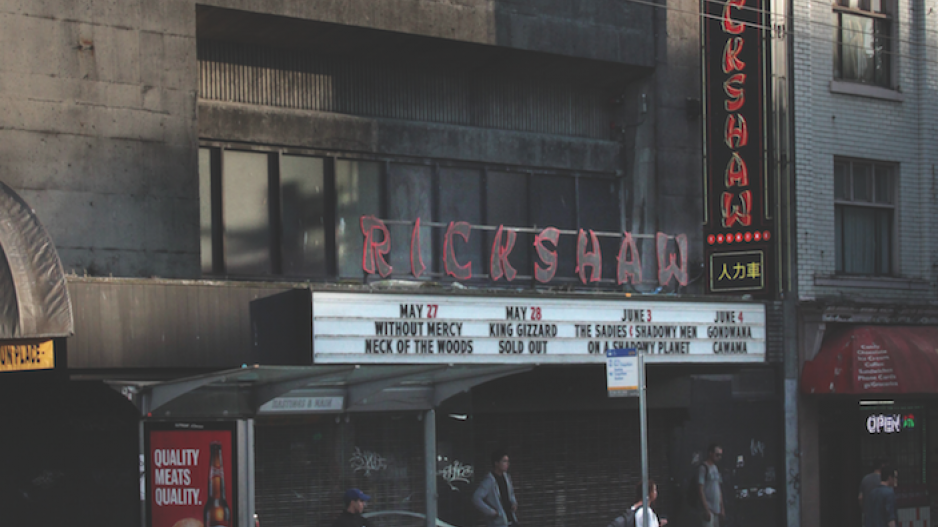The former head of the Hong Kong-Canada Business Association (HKCBA) has refused to answer questions about being listed as a director of an offshore entity exposed in the International Consortium of Investigative Journalists’ (ICIJ) Offshore Leaks investigation, which predated the Panama Papers leak by three years.
Lucy Shaw Roschat, who as HKCBA president criticized a BCNDP initiative in 1993 to apply a 0.3% tax on companies’ capital, remains influential in the city’s business community.
According to a February 8, 1993, South China Morning Post story (“Tax Wrangle Illustrates Drawback of Democracy”), Shaw Roschat warned the government of the day that the tax could end up “killing the goose that lays the golden eggs.” While she admitted in the story that immigration from Hong Kong would still continue, she warned that B.C. could miss out on investment that would otherwise flow into the province if the tax was adopted.
Shaw Roschat is a member of Hong Kong’s famed billionaire Shaw family, which still owns Vancouver’s Rickshaw Theatre, a throwback to her great uncle Sir Run Run Shaw’s legacy as a legend of Hong Kong cinema, founding the studio that launched the kung-fu careers of Jackie Chan and Jet Li. Shaw Roschat was the president of Cathay International Television, an early player serving the city’s burgeoning Chinese-speaking community, and a director of Runvee Georgia Properties Ltd. The company, which was dissolved in 2006, boasted substantial real estate holdings that included nearly the entire 1900-block of West Georgia Street.
But it was another Runvee entity that found itself in a tax spat in the U.S. over a massive land deal in Nevada that generated a tax bill of $35 million. Runvee Inc. sued in a “quiet title” case to bury the U.S. government’s claim for a cut.
The case shone a light on the Shaw family’s use of shell companies incorporated in known tax havens and was eventually shot down in March 2013.
In his ruling, District Judge Kent Dawson found that “the Shaw family treated both [Runvee Inc.] and Runvee Holdings as an extension of themselves. The capital structure created by the Shaws reflects a unity of interest between [Runvee Inc.] and its beneficial owners – as does the circular flow of funds involved in [Runvee Inc.]’s ‘purchase.’ Moreover, under the circumstances of this case, and given the Shaw family’s plan to evade over $35 million in taxes, a failure to disregard [Runvee Inc.]’s corporate form would perpetuate an injustice on the United States.”
While the case played out far from Shaw Roschat’s 6,000-square-foot home near Burnaby’s Deer Lake, the focus on wealthy individuals using shell companies in tax havens has come into sharp focus since the Panama Papers leak, which expanded upon the ICIJ’s 2013 Offshore Leaks. While the Panama Papers have sent shock waves through the global business and political elite, the Offshore Leaks generated little media coverage in Canada at the time.
Both leaks contain the names and addresses of hundreds of Canadians and can be accessed in the ICIJ’s database.
Shaw Roschat is listed as a director of Amplesse Group Ltd., a company incorporated in the British Virgin Islands in 2005, along with Marie Teresa Shaw of West Vancouver, with intermediaries listed as Josephine Shaw and Asian wealth advisory company Portcullis TrustNet (BVI) Ltd.
There was no answer at Marie Teresa Shaw’s when called for comment at her West Vancouver home on Glenmaroon Road.
Reached at her home in Burnaby, which she shares with her husband, a German cabinetmaker, Shaw Roschat refused to comment about her name showing up in the ICIJ’s database.
“That’s none of your business,” Roschat said. “You don’t have to know anything because it’s none of your business.”
An ICIJ database disclaimer states that “there are legitimate uses for offshore companies and trusts.
“We do not intend to suggest or imply that any persons, companies or other entities included in the ICIJ Offshore Leaks Database have broken the law or otherwise acted improperly.”
@BIVnews




